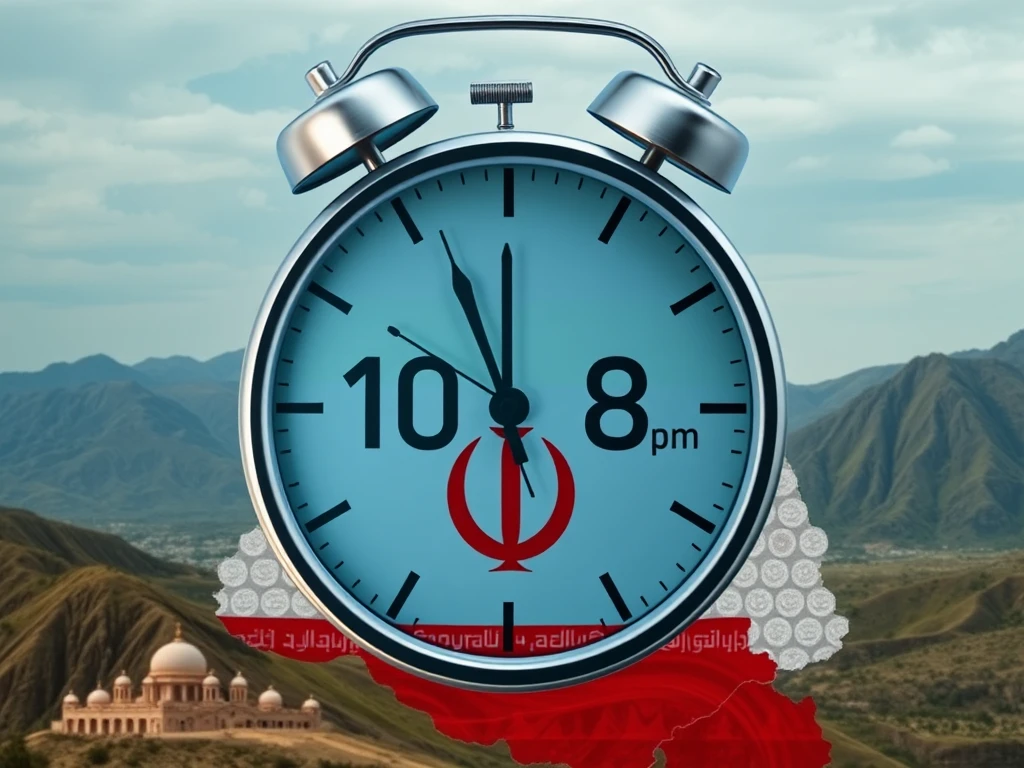Urgent: Iran Imposes Crypto Exchange Curfew Following Devastating Nobitex Hack

The world of cryptocurrency is constantly evolving, and sometimes, not for the best reasons. Recent events in Iran have sent ripples through the local digital asset community, particularly after a significant security breach. If you’re tracking developments in the Middle East or interested in how geopolitical tensions intersect with digital finance, the latest news regarding Iran crypto exchanges is crucial.
Why Iran Imposed a Crypto Exchange Curfew
Following a major exploit on one of its largest platforms, the central bank of Iran has reportedly mandated a strict curfew for domestic crypto exchanges. This means these platforms can only operate between 10 am and 8 pm. This drastic measure comes on the heels of a substantial $100 million exploit targeting Nobitex, a prominent Iranian crypto exchange.
According to reports cited by Chainalysis, the move is likely multi-faceted. Andrew Fierman, Chainalysis’s head of national security intelligence, suggested to Crypto News Insights that the curfew could serve two main purposes:
- Incident Response: Limiting operations to specific hours makes it easier for authorities and exchanges to monitor and respond to security incidents like hacks, as they aren’t happening at all hours of the night.
- Capital Control: Amidst heightened geopolitical tensions, the Iranian regime may seek greater control over citizens’ transactions, especially cross-border ones facilitated by crypto exchanges, to prevent capital flight.
Iran has a history of imposing restrictions on exchanges, including temporary shutdowns, often to protect its national currency, the Rial, from depreciation.
The $100M Nobitex Hack Explained
The catalyst for the recent curfew appears to be the significant security breach at Nobitex. On Wednesday morning, the exchange confirmed it had been exploited. The estimated losses stand at a staggering $100 million, involving various cryptocurrencies including Bitcoin (BTC), Ether (ETH), Dogecoin (DOGE), XRP (XRP), and Solana (SOL).
A group identifying themselves as Gonjeshke Darande, a pro-Israel hacker crew, claimed responsibility for the attack. They allege they infiltrated Nobitex’s internal systems and drained funds from its hot wallets. What makes this Nobitex hack particularly unusual is the fate of the stolen funds.
Chainalysis reported that the attacker-controlled wallets appeared to be ‘burner addresses’ without accessible private keys, effectively making the stolen assets irretrievable. This suggests a motive beyond financial gain.
As Fierman noted, “While hacks historically have almost always been for financial gain, this event stands out given the intent appears to have been politically motivated to take funds away from the regime.” Burning tokens means permanently removing them from circulation, usually by sending them to an address that no one can access.
Nobitex Responds and Recovers
Following the incident, Nobitex quickly took action, severing external access to its servers. In a statement on X, the exchange’s communication team stated the situation was “under control.”
While user access remained unavailable at the time of reporting, Nobitex committed to covering all assets lost in the hack using its Reserve Fund. The technical team also began moving assets from online hot wallets to offline cold storage to enhance security and prevent future exploits.
Nobitex acknowledged that internet disruptions and blocked external access might cause delays in restoring user access to the platform.
The Importance of Nobitex in Iran’s Crypto Ecosystem
Chainalysis data highlights Nobitex’s critical role in Iran’s digital asset landscape. The exchange has recorded well over $11 billion in total inflows, significantly more than the combined total of the next ten largest Iranian exchanges, which stands just under $7.5 billion.
Nobitex serves as a vital gateway for Iranian users to access global crypto markets, especially given the country’s isolation from traditional finance due to sanctions. Chainalysis describes it as a “critical hub” within Iran’s heavily sanctioned crypto ecosystem.
However, Chainalysis also noted the exchange’s links to entities considered terrorist groups in the Western world, including Houthi rebels and a pro-al-Qaeda channel, as well as sanctioned Russian crypto exchanges like Garantex and Bitpapa.
Understanding the Crypto Curfew and Its Implications
The imposition of a crypto curfew in Iran is a significant regulatory step. While partly aimed at managing security incidents like the Nobitex hack, it also underscores the regime’s desire for increased control over capital flows, particularly during periods of geopolitical instability with countries like Israel.
This event highlights the complex interplay between national security, cybercrime, cryptocurrency adoption, and government regulation in sanctioned economies. For Iranian users, the limited operating hours add another layer of difficulty to accessing and trading digital assets.
Summary: Navigating the Fallout
The recent $100 million Nobitex hack and the subsequent Iran crypto exchange curfew are stark reminders of the security risks and regulatory challenges facing cryptocurrency platforms and users, especially in politically sensitive regions. While Nobitex is working to restore services and cover user losses, the central bank’s decision to limit operating hours signals a tightening grip on the country’s digital asset space. This development will likely impact the flow of capital and the accessibility of crypto for everyday Iranians, demonstrating how global tensions can directly influence local crypto markets and regulations.







